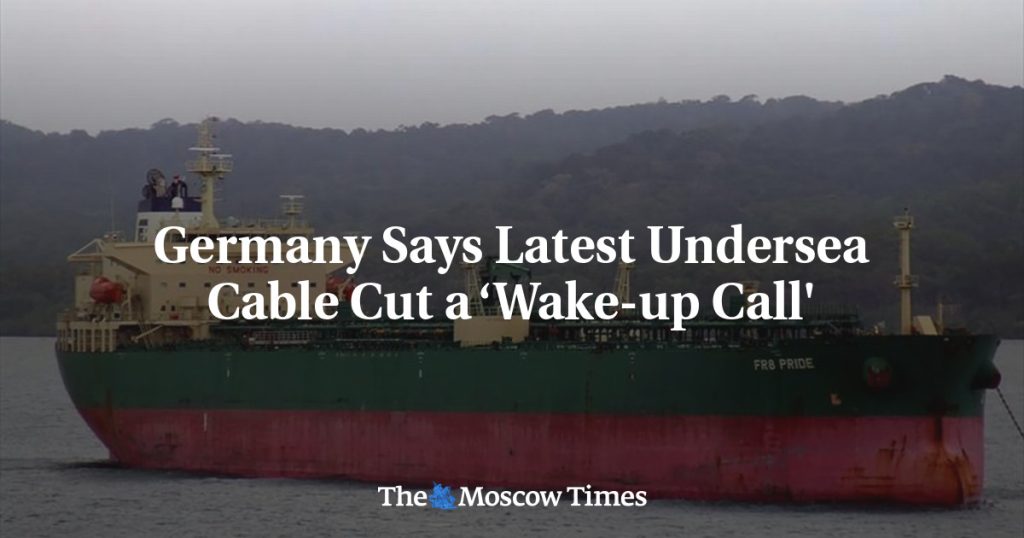Germany has expressed concern over the suspected sabotage of an undersea power cable connecting Finland and Estonia, calling it a “wake-up call” that warrants new EU sanctions against Russia’s “shadow fleet.” The Estlink 2 cable, which carries electricity from Finland to Estonia, was disconnected from the grid, following two instances of telecommunications cables being severed in Swedish territorial waters in the Baltic. German Foreign Minister Annalena Baerbock has highlighted the recurring incidents of ships damaging undersea cables in the Baltic Sea, and has called for urgent action in response to these deliberate acts of sabotage.
Baerbock raised the alarm over crews leaving anchors in the water, dragging them for kilometers along the seafloor without cause, and subsequently losing them when retrieving them. She emphasized the need to address the issue with new European sanctions against the Russian shadow fleet, referring to ships that continue to transport Russian crude and oil products despite embargoes in place due to Moscow’s invasion of Ukraine. The fleet poses a significant threat to the environment and security, serving as a means for Russia to fund its war of aggression in Ukraine. Finland has initiated an investigation into an oil tanker, Eagle S, which sailed from a Russian port and is suspected to have played a role in the sabotage of the Estlink cable.
In response to the sabotage incident, NATO has announced plans to enhance its military presence in the Baltic Sea. Secretary General Mark Rutte emphasized the importance of increasing security measures in the region to address the growing threats posed by such acts of aggression. The disruption of critical infrastructure, such as undersea cables, highlights the vulnerability of communication and energy networks in the region and the need for coordinated efforts to prevent future attacks. By strengthening military presence in the area, NATO aims to deter potential threats and safeguard the security of Baltic nations.
The suspected sabotage of undersea cables in the Baltic Sea has raised concerns about the ongoing security challenges in the region and the need for unified action to address them. The deliberate targeting of critical infrastructure not only disrupts vital services like electricity and telecommunications but also poses a significant risk to the environment and regional stability. The involvement of foreign ships in these incidents has further heightened tensions and underscored the complex geopolitical dynamics at play. By calling for new sanctions against the Russian shadow fleet and increasing military presence in the region, countries like Germany and NATO are signaling a firm response to such provocations.
The investigation into the possible role of the oil tanker, Eagle S, in the sabotage of the Estlink cable highlights the importance of holding those responsible for such acts of sabotage and aggression accountable. By probing and identifying the perpetrators behind these incidents, authorities can seek justice and prevent future attacks on critical infrastructure. The emphasis on enhanced security measures and international cooperation underscores the collaborative efforts needed to safeguard the Baltic Sea region from potential threats. The ability to respond effectively to such challenges will require a combination of diplomatic, legal, and security measures to address the root causes of aggression and ensure stability in the region.
The recent incidents of sabotage in the Baltic Sea serve as a stark reminder of the vulnerabilities faced by countries in the region and the imperative to strengthen defenses against threats to critical infrastructure. The call for new EU sanctions against the Russian shadow fleet reflects a broader push for greater accountability and deterrence in the face of escalating tensions. By prioritizing security cooperation and multilateral action, countries like Germany and NATO are taking proactive steps to address the security challenges posed by acts of sabotage in the region. As investigations continue and international responses evolve, the need for continued vigilance and coordination among all stakeholders remains crucial to upholding stability and security in the Baltic Sea.















